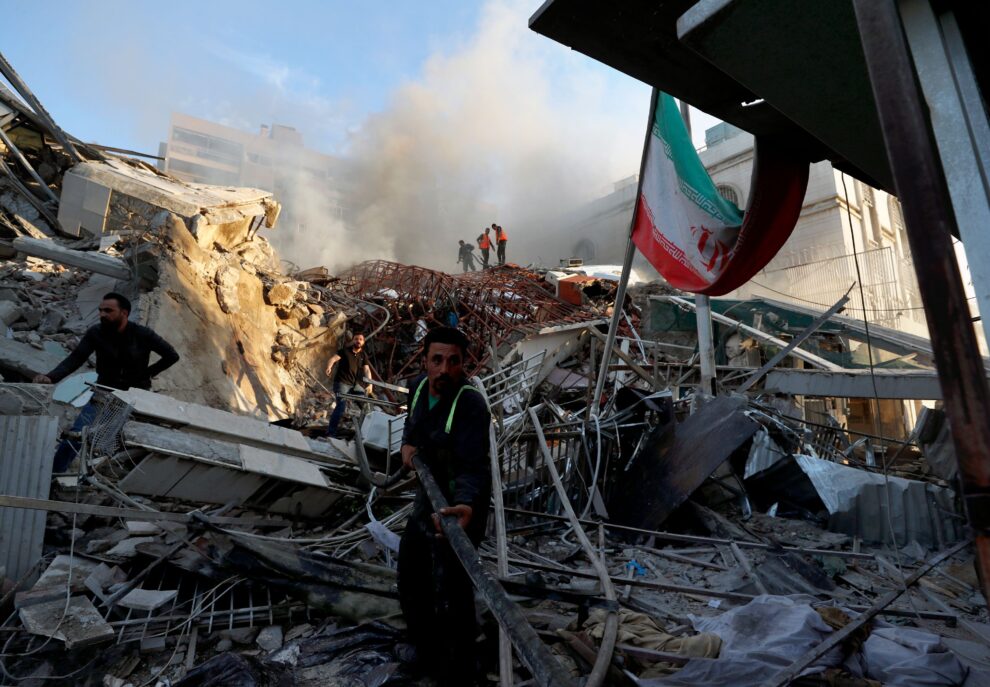Synopsis
Israel’s recent killing of Hezbollah and Hamas leaders and missile attacks on Tehran have made Iran’s dialogue with the West problematic and forced Iranian President Masoud Pezeshkian to seek closer relations with Russia, China and the Gulf States. The failure of Iran’s strategy of forward defence, as shown in its inability to fend off the Israeli attacks, may compel Iran to acquire a nuclear arsenal earlier. This could derail its hard-won relations with the Gulf States and complicate its desired rapprochement with the West.
Commentary
Since July 2024, Iran’s policy community has experienced unprecedented events, including the assassinations of Hezbollah leader Hassan Nasrallah and Hamas chiefs Ismail Haniyeh and Yahya Sinwar, as well as the Israeli missile attack on 26 October. How will these events affect Iranian foreign policy and relations with the West, given President Masoud Pezeshkian’s promise of constructive engagement with its principal antagonists? How will Iran react to its failure to fend off the Israeli missile attack?
Iranian foreign policy is affected in two ways. First, these events have derailed Pezeshkian’s attempts to improve relations with the West and compel it to step up efforts to seek out allies. Second, Iran is compelled to improve its deterrence capabilities, including the pursuit of a nuclear bomb.
Stiffening Iranian Resistance

The Israeli missile attack and assassination of Hamas and Hezbollah leaders have intensified Iranian anger at the West, particularly the US, and hardened the stances of dominant hardline Iranian factions.
Before the assassinations, Pezeshkian had signalled a desire to ease tensions with Israel and to “put all our weapons aside so long as Israel is willing to do the same”. This led to a barrage of criticism, with social media users demanding his impeachment and accusing him of harming Iran’s alliances with Hezbollah, Hamas, and the Houthis (collectively known as Iran’s Axis of Resistance). Some even blamed him for Nasrallah’s assassination, arguing that his demonstration of weakness at the UN General Assembly in New York in late September emboldened Israel.
Hardline Iranian parliament members have declared that Nasrallah’s assassination occurred because Iran’s leaders were deceived by Western calls for a ceasefire. Conservative Iranian news outlets such as the Vatan-e Emrooz highlighted the “consequences of inaction”, while other media outlets stoked public anger by calling for war against Israel.
The Israeli missile attack on Tehran and the assassination of Hamas and Hezbollah leaders have, therefore, made dialogue and negotiations with the West politically problematic. While senior political leaders in Iran, such as the Supreme Leader’s adviser, Ali Akbar Velyati, have advocated openness to negotiations with the W
est, it remains to be seen if this conciliatory stance is politically feasible given the tense domestic political environment. During a visit to Oman on 14 October, Iranian Foreign Minister Abbas Araghchi asserted that there is no basis for talks with the US, given the current crises in Gaza and Lebanon.
Seeking New Allies
In the face of domestic opposition, Pezeshkian has little choice but to maintain Iran’s eastward-looking foreign policy toward Russia and China. Conservative critics have long advocated closer Iranian relations with the East to build resistance against the West. As Iranian officials have stated, “Europe left Iran no choice but to side with Russia”.
Russia has voiced support for Iran and criticised the Israeli strikes for “destabilising the Middle East”. It has also condemned the Israeli killing of Nasrallah as a “political assassination”. These statements were strengthened by Russian Prime Minister Mikhail Mishustin’s visit to Tehran a few days after Nasrallah’s assassination. Furthermore, media analyses claimed Russia reportedly provided Iran with intelligence ahead of Israel’s missile attack on 26 October.
Pezeshkian made overtures to Gulf Arab states after the killing of Nasrallah and Sinwar, following Supreme Leader Ali Khamenei’s proclamations for religious unity against Iran’s enemies. This move attempts to appease the ultra-conservatives who have long called for international religious solidarity against Iran’s enemies.
On a state visit to Qatar after Nasrallah’s assassination, Pezeshkian led a joint press conference with Qatar’s Emir, in which he condemned Israeli aggression against Iran and called for greater cooperation. This led to the signing of six new memoranda of cooperation between Qatar and Iran in various sectors, including energy, sports training, and trade. Qatar hosting the US Central Command in the Middle East underscored the visit’s strategic value.
Iran is also warming its ties with formerly hostile Gulf states. In an unprecedented move, on 24 October, Iran held naval exercises with Saudi Arabia in the Sea of Oman, which would have been impossible earlier, given their mutual hostility.
On 25 October, Iran’s foreign minister met the King of Bahrain for the first time in 17 years. This is significant as relations between the two countries have long been tense and marked by hostility. Bahrain is also the headquarters of the US Fifth Fleet.
As one can expect, Iran’s eastward pivot will complicate its relations with the West. Deepening its links with Russia risks entrenching Western perceptions of a revisionist “international authoritarian axis”. Furthermore, overtures to US security partners Saudi Arabia, Bahrain and Qatar increase Western suspicions that Iran is attempting to undermine US influence in the Middle East.
Improving Military Deterrence
Israel’s assassination of Hamas and Hezbollah’s leaders and its missile attack on
Iran have shown the failure of the latter’s longstanding strategy of forward defence. This strategy relies on the use of its allies in the Axis of Resistance, i.e., the Houthis, Hamas, and Hezbollah, as both proxy fighters and defensive buffers, challenging US and Israeli military power yet keeping war away from Iran.
The failure of Iran’s forward defence strategy could force it to acquire a nuclear bomb sooner as a military deterrent against its enemies. However, this could trigger an Israeli or US attack on Iranian nuclear facilities as both these countries have avowed that Iran would not be allowed to possess a nuclear bomb.
Possessing nuclear weapons would also derail Iran’s hard-won relations with the Gulf states, particularly with Saudi Arabia, heightening regional insecurities and hostilities against it, leading to a dangerous regional arms race for weapons of mass destruction.
On the other hand, if the Israeli onslaught continues, including attacks on Gaza and Lebanon, it could lead to a decisive shift in Iranian restraint. Iran’s leaders are increasingly being forced to choose between ditching restraint or being made to look weak and helpless in the face of Israeli aggression.
Iran’s retaliatory missile attack against Israel on 1 October is an indication of its strategic shift. It gave no warning and used hypersonic and ballistic missiles, which was unlike its 13 April missile attack on Israel, when it gave prior warning and used drones and cruise missiles that were easier to intercept.
As of now, following Israel’s retaliation on 26 October for the Iranian missile attack of 1 October, the world waits with bated breath for an Iranian retaliatory response, which Supreme Leader Khamenei has promised would be “crushing”.
Going Forward
Israel’s missile attack on Iran and its strategy of decapitating the leadership of Iran’s allies have complicated Pezeshkian’s goal of reaching a rapprochement with the West (principally, the US) and forced Tehran to take on a more aggressive posture in its strategy. The prospects for an improvement in Iran’s relations with the West do not look good, especially when its warming ties with Russia, China and the Gulf States have been at the expense of the West.
The election of Donald Trump as the next US President portends worsening relations between Iran and the US. The fear of Iranian weaponisation of its nuclear capability now looms closer than before the Hamas surprise offensive in October 2023.
Huzeir Ezekiel Dzulhisham is a Research Analyst in the Dean’s Office at the S. Rajaratnam School of International Studies (RSIS), Nanyang Technological University (NTU), Singapore.















